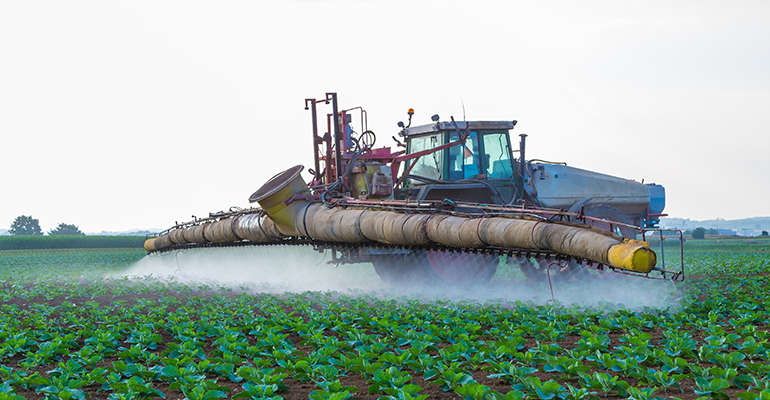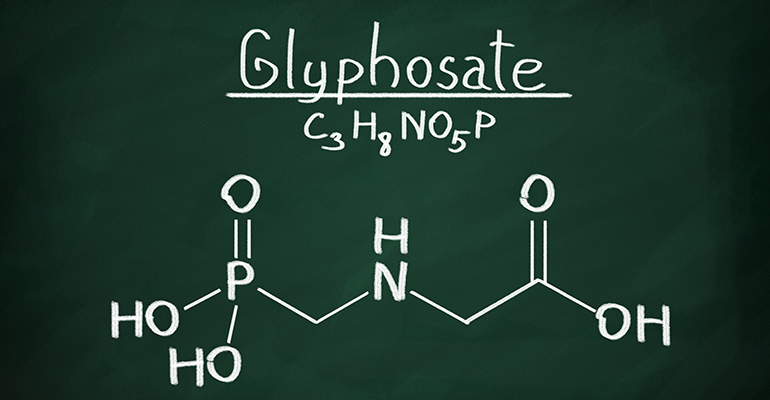News
Food safety body strongly against EU glyphosate reapproval
31 Jul 2023As the European Union (EU) considers the potential reapproval of the common pesticide glyphosate in the food manufacturing space, Safe Food Advocacy Europe (SAFE) confirms its opposition to the move.
On 6 July, the European Food Safety Authority (EFSA) sent its conclusions on the “Peer review of the pesticide risk assessment of the active substance glyphosate” to member states and the European Commission (EC). In its decision, ESFA stated it did not identify “critical areas of concern”.
As such, the EC plans to fully reapprove the use of the substance in the EU.

Progressing glyphosate approval
Discussions between the EC and member states in the Standing Committee on Plants, Animals, Food and Feed (PAFF) began on 12 July. After analysing the member states’ renewal assessment report and the conclusion, the EC said it agreed with the renewal of glyphosate approval, subject to certain conditions, and presented a draft renewal report to member states on 13 July.
Future discussions will take place in September, with decision-making to be finalised by 15 December, when the current approval will expire. Glyphosate is accepted as an active substance in plant protection products (PPPs) until then, provided national authorities authorise each PPP following a safety evaluation.
Glyphosate was approved for use in the EU in 2017 for a limited period of five years, with an extension for a further 12 months in December 2022, which expired in 2023. If full reapproval does take place, it will grant the use of glyphosate for an additional five years.
No to reapproval
SAFE, an NGO that specialises in protecting and representing EU consumers in the food sector, is firmly against the reapproval of the substance due to its classification as a “probable carcinogen” for humans by the International Agency for Research on Cancer in 2015.
“In light of that, reapproval of the substance absolutely cannot take place without proof that it is not harmful to human health and the environment,” said SAFE in a statement.
As well as saying no to the reapproval of glyphosate, the Brussels-based NGO also stated that numerous scientific studies have shown glyphosate’s contamination and adverse effects on living organisms.
“In light of the mounting evidence of glyphosate’s potential harm to human health and the environment, it is imperative that institutions take a proactive and precautionary approach to protect public wellbeing,” SAFE stated.
Described by Pesticide Action Network UK as the globe’s most widely used herbicide, glyphosate is identified as a residue on many of the food products we consume. Applications of pesticides are often given to crops during agriculture, resulting in varying levels of glyphosate residues, for example, remaining in or on food.
Removing residues from the food consumers eat is a priority for advocacy agencies such as SAFE and non-profit organisations such as Pesticide Action Network UK. Data analysis exploring residues in the UK for the past 12 years, released by the Expert Committee on Pesticide Residues in Food, detailed unacceptable levels of pesticides present in food.
The report found that 123 pesticides were identified, with some of these associated with serious health concerns such as cancer or hormonal disruption.
“Transparency is another significant concern surrounding the assessment,” SAFE said.
 © AdobeStock/makaule
© AdobeStock/makaule
While the reports indicate that the reapproval of glyphosate’s licence is now expected in September, SAFE states that the complete EFSA documents will not be disclosed until October 2023. The not-for-profit organisation believes this “hinders the possibility of a constructive scientific and public debate on the authority’s conclusions”.
Data gaps
The draft relies on the conclusion presented by EFSA, which SAFE states had found “data gaps”. These data gaps make it impossible to finalise several issues, including consumer dietary risk assessment. Tools are available in the food industry, including the Food Outlets Dietary Risk (FODR) assessment tool, designed to assess community food environments’ public health nutrition risks.
If glyphosate is reapproved for the EU market, this means that the substance would be based on an evaluation that, SAFE states, has failed to consider a vital element – “evidence demonstrating that consumers’ health is not at risk”.
“The omission appears even more concerning as EFSA itself admits, with respect to ecotoxicology, that the data package identified a high long-term risk to mammals in 12 out of 23 proposed uses of glyphosate,” it added.
SAFE also said that other issues relating to the active substance, including the assessment of one of the impurities in glyphosate and the assessment of risks to aquatic plants, still need to be thoroughly investigated. “When faced with a lack of data, it is essential to apply the precautionary principle, prioritising the wellbeing of consumers and the environment,” it said.
Urgent call to reconsider
SAFE is urging the EC to reconsider its position, advocating for a re-evaluation of the risk assessment by EFSA. The organisation states that during this re-evaluation, EFSA needs to address data gaps, prioritise consumer safety, and conduct a thorough dietary risk assessment.